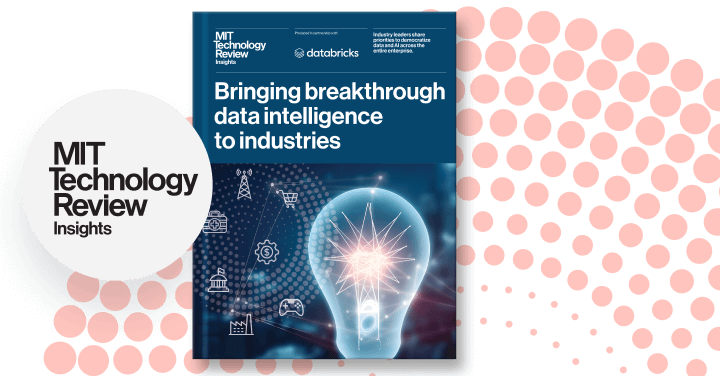Databricks and Technology Partners: Personalized Medicine with a Tailored Approach
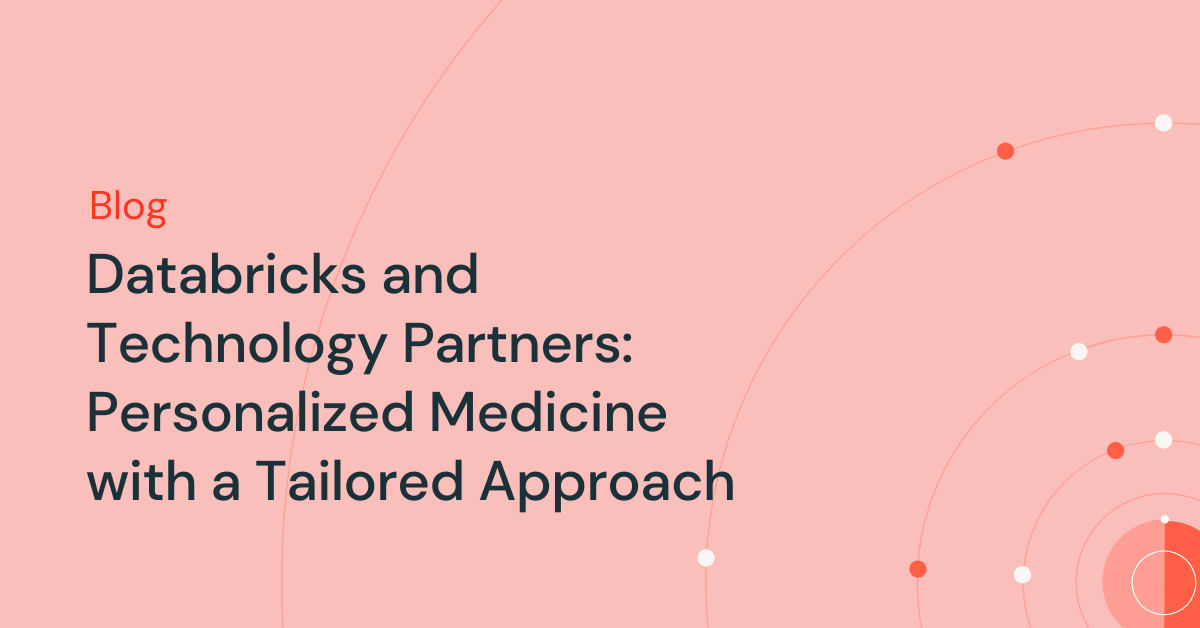
Published: August 1, 2023
by Jake Gower and Christopher Lundeberg
In the ever-evolving realm of healthcare, two powerful trends have emerged: The rise of personalized medicine and the increasing emphasis on patient involvement in healthcare decisions. These trends are not just transforming the way we approach healthcare, but reshaping our understanding of patient care.
By harnessing the combined power of Databricks and Technology Partners, your organization gains access to lakehouse functionality, enabling all your data to be accessed for business insights and long-term research – two targets that have largely been unattainable for medical research institutions up to this point.
Read on to find out why these are substantial wins if your team is considering multi-cloud architectures to simplify workflows, optimize data investments, and deliver critical insights.
The Path to Personalized Medicine
Personalized medicine holds immense promise for the future of healthcare. This revolutionary approach tailors treatment to the individual patient based on unique genetic, epigenomic, and clinical information. Its potential benefits range from reducing financial burden and saving critical time to improving patient's quality of life and extending their overall lifespan.
However, the path to personalized medicine is not without its challenges. The implementation of this approach faces hurdles related to methodological, technological, and legal factors. Despite these roadblocks, these tremendous benefits of personalized medicine make it a goal worth pursuing.
Increasing Adoption
Despite the exciting potential of personalized medicine, its adoption into clinical practice has been slow. This is due to a variety of factors including the need for increased education and awareness among healthcare professionals and patients, the necessity for patient empowerment, the recognition of the value of personalized medicine, the requirement for infrastructure and information management, and the importance of ensuring access to care.
To drive increased adoption, we need to confront these challenges head-on. This includes developing comprehensive educational programs for healthcare professionals and patients, creating tools and resources to empower patients, investing in infrastructure and information management systems, and implementing policies to ensure equitable access to personalized medicine.
Integrating Cloud-Adjacent Technologies
By integrating cloud and cloud-adjacent technologies like private cloud and co-located hardware, with Databricks, medical institutions can achieve high bandwidth, low-latency connectivity. This enables seamless collaboration and data analysis across environments, creating a powerful synergy that leverages the strength of both worlds. Furthermore, private clouds enable connectivity to multiple clouds. Therefore, medical research institutions can use Databricks to perform ETL, data science, and data warehousing analytics directly with Technology Partners across one or multiple clouds simultaneously allowing for the best of both worlds.
With Databricks as the foundation, organizations gain an open, unified platform for data, analytics, and AI, enabling the seamless sharing, processing, and analysis of vast amounts of data. Technology Partners' work with Databricks Lakehouse Platform and leading cloud providers has enabled organizations to analyze data in the cloud, on-premises, and in private cloud environments to drive insights at an entirely new breadths and depths.
Data intelligence reshapes industries
Ethical Considerations: Ensuring Equitable Care
As we move towards a future of personalized medicine, we must also consider the ethical, legal, and social implications. The significant increase in health information that personalized medicine brings about could potentially exacerbate existing disparities in healthcare.
To ensure equitable care, we need to develop policies and practices that protect patient privacy, ensure data security, and promote equitable access to personalized medicine.
This includes implementing data protection regulations, investing in secure data management systems, and developing strategies to ensure that all patients, regardless of their socioeconomic status, have access to personalized medicine. All of these key goals can be achieved with Databricks and Technology Partners.
The Call to Action: Sharing Power and Decision-Making
The call to better involve patients and the public in healthcare is growing louder. However, progress has been slow and often concentrated at the lowest levels of involvement.
To answer this call, we need to shift our approach to healthcare from a provider-centric model to a patient-centric one. This involves not only giving patients a voice in their own care, but also involving them in broader healthcare decisions. This could include involving patients in healthcare policy development, service design, and quality improvement initiatives.
Josephine Ocloo and Rachel Matthews created the below simplistic visual model in 2016 as an initial framework for power sharing in healthcare. Perhaps their most interesting proposal is community driven resource allocations for healthcare systems regionally.
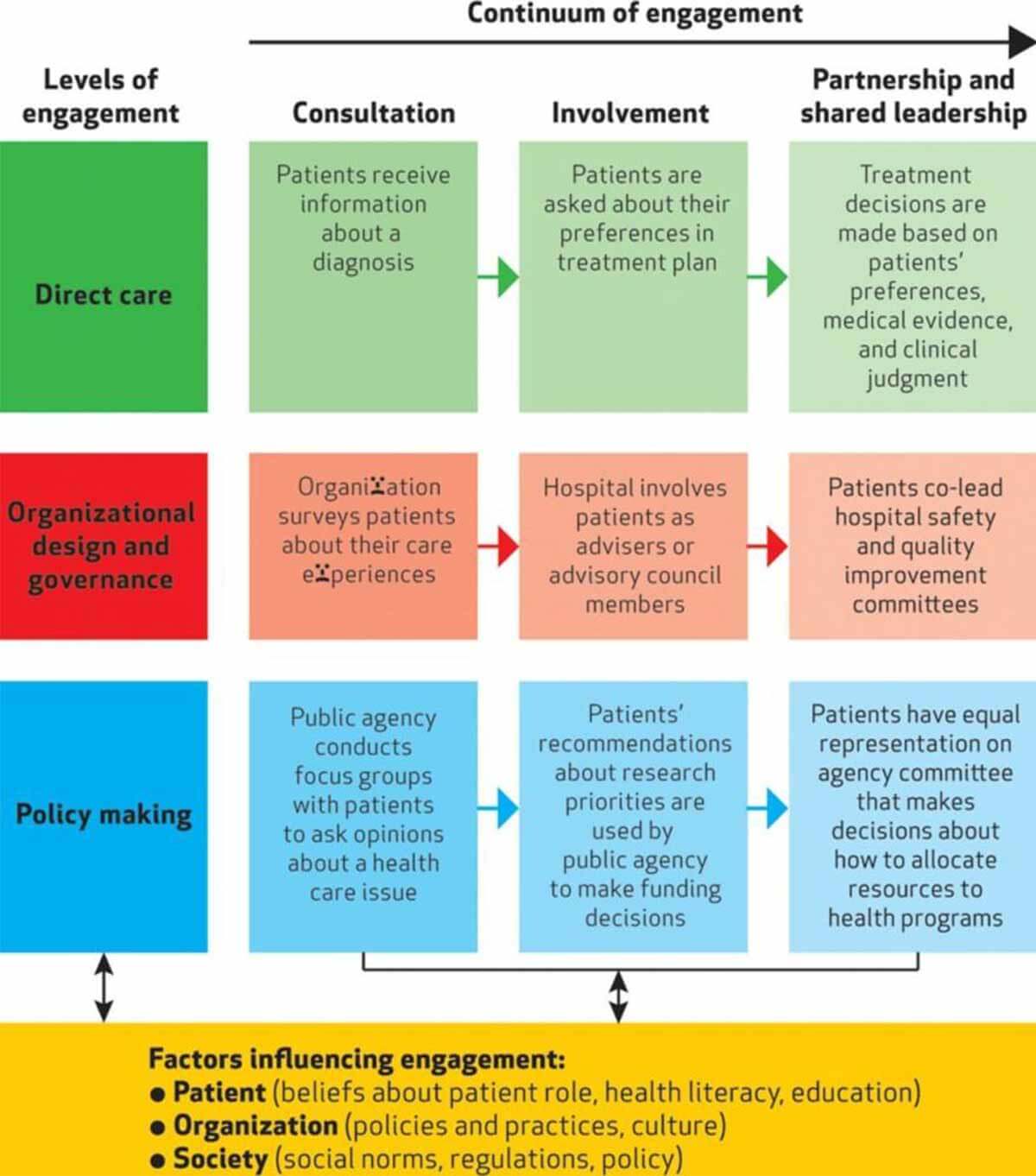
All-in-One Solution for Population Health and Precision Medicine
Databricks and Technology Partners have collaborated to create a scalable and secure Data Lakehouse Platform that is currently in market with leading medical research institutions across the United States.
This solution, Databasin, enables population health and precision medicine research by creating an automated research environment with powerful analytics built to take manual data management off your researcher's plate.
In addition, machine learning and advanced analytics capabilities help create team science at scale, allowing your researchers to collaborate and share data across disciplines and institutions.
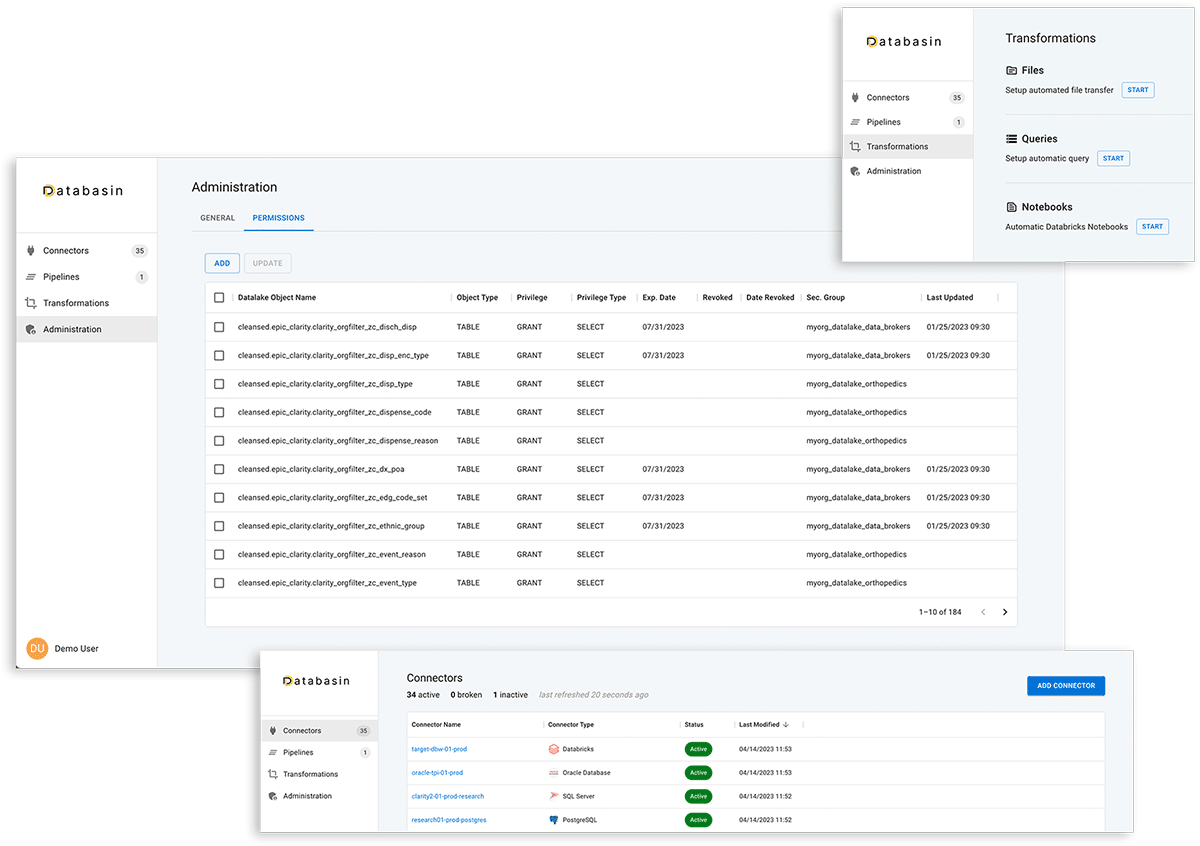
Unmatched Source Connectivity
Databasin offers full support for a wide range of sources, including:
- Epic (Clarity2)
- Flat files (CSV, TSV, JSON)
- Restful APIs, including full support for Redcap
- SFTP sources
- Azure sources, such as Blob, ADLS, and File Share.
Self-Service Data in a Snap
Databasin's self-service framework is more than just code automation – it will automate your entire workflow, allowing you to:
- Run arbitrary code and Databricks Notebooks on a regular schedule
- Securely schedule both internal and external file exports
- Support individual schedules and concurrency control
The future of healthcare is a journey towards personalized medicine and patient empowerment. It's a journey that requires all of us – healthcare professionals, patients, and the public – to work together towards a shared goal. Let's embrace this journey and step into the future of healthcare together. Connect with us, and get started today.
Never miss a Databricks post
What's next?
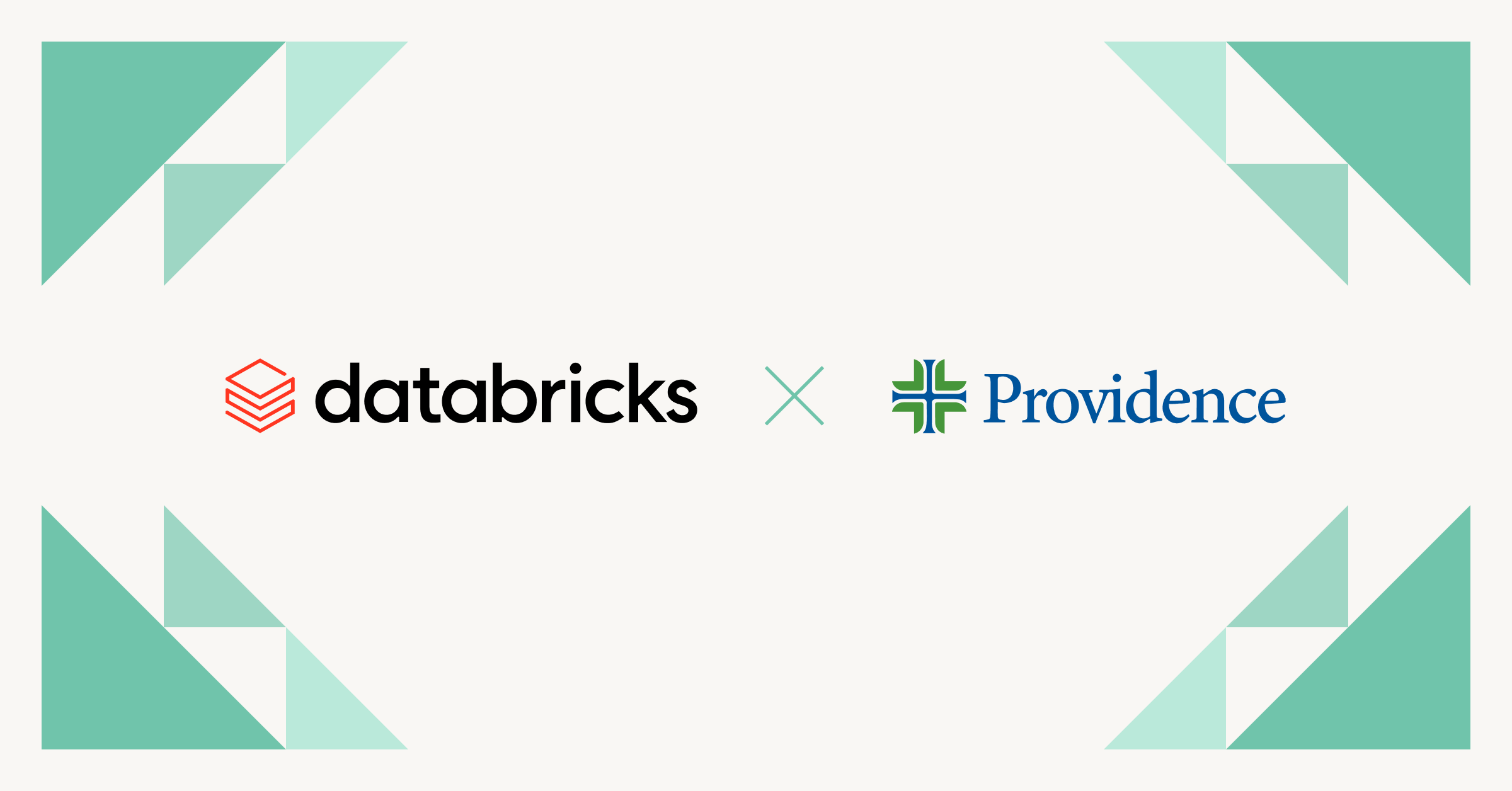
Data Science and ML
November 14, 2024/2 min read
Providence Health: Scaling ML/AI Projects with Databricks Mosaic AI

Product
November 27, 2024/6 min read
